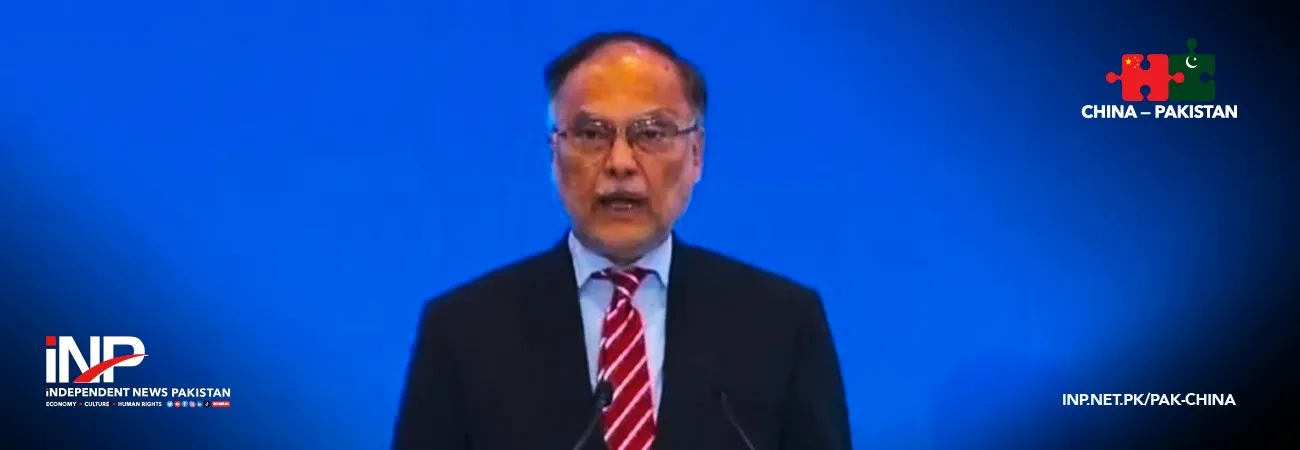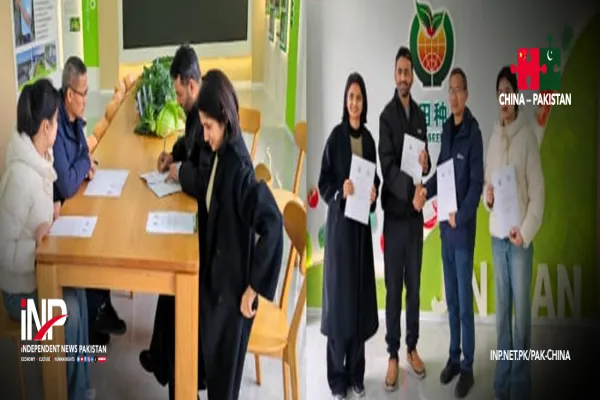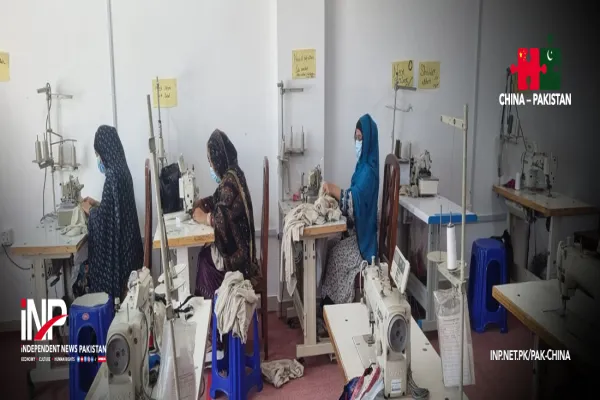i NEWS PAK-CHINA
Federal Minister for Planning, Development and Special Initiatives Professor Ahsan Iqbal said that China’s BeiDou Navigation Satellite System (BDS) can help Pakistan better cope with climate disasters such as this year’s monsoon floods. The National Disaster Management Authority said the floods left more than 1,000 dead, about 1,000 injured, 3 million displaced, and over 12,000 houses damaged nationwide.
“Communities vulnerable to floods can be saved through early warning and rescue enabled by BeiDou,” Iqbal said in his keynote address as Chief Guest at the 4th International Summit on BDS Applications in Zhuzhou, Gwadar Pro reported on Friday. Ahsan Iqbal noted that Pakistan is among the ten countries most vulnerable to climate change and said BeiDou offers practical solutions.
“In today’s world, positioning, navigation and timing services are the invisible infrastructure that sustains economies and societies… and particularly important for a country like Pakistan, which is among the top 10 climate change affected. In simple words, without PNT, the modern economy stops,” he said. The minister recalled that Pakistan was the first foreign country to use BeiDou, calling it “a clear reflection of the trust and depth of our all-weather friendship with China.”
He said Pakistan has already achieved initial operational capability of its own systems — Pak-SBAS and Pak-GPASS — and their integration with BeiDou ensures “resilience, independence and precision in navigation services.” He underlined how BeiDou could support Pakistan’s economic future through the China-Pakistan Economic Corridor (CPEC). “Navigation improves logistics, reduces cost and enhances operations at Gwadar and Karachi, transforming CPEC into not just a physical network, but a digital corridor powered by space technology,” Ahsan said.
The Minister added that the technology is already making a difference in daily lives. “Farmers can grow more with less through precision farming, patients in remote villages can access telemedicine and reliable emergency transport. Urban citizens benefit from smarter traffic systems in our cities, saving time and reducing emissions. Every BeiDou signal enhanced by Pakistan’s systems is not just data, it is food on the table, a faster ambulance and safer roads for our people.”
Mr. Ahsan said BeiDou integration directly contributes to Pakistan’s development priorities, from food security and transparent governance to youth employment. “BeiDou is not just technology, it is empowerment, and hope,” he said. He outlined Pakistan’s proposals for cooperation, including full-scale utilization of BeiDou with Pak-SBAS and Pak-GPASS, nationwide expansion of coverage, strengthening of Pakistan’s National Center for GIS and Satellite Technology as a BeiDou regional center of excellence, and joint R&D and training with Chinese experts.
“This partnership is also a reflection of the China–Pakistan Economic Corridor, the Belt and Road Initiative. Every BeiDou signal received in Pakistan is not only a signal from space, it is a signal of hope, prosperity and shared progress of our people,” Ahsan added.
Credit: Independent News Pakistan (INP) — Pak-China









